Lonnie Busch's Blog - Posts Tagged "writing"
Houdini, Escapist Fiction and The Role of Art

(Originally appeared in Crime Reads magazine in slightly altered form)
Houdini, maybe the most famous escape artist of all time, astonished audiences with his ability to shed shackles and chains (at times even bound by a straightjacket) while submerged in a tank of water without a breathing apparatus, the clock ticking, his very life on the line. It takes my breath away just thinking of it.
Most artists are “Houdinies” of a sort, illusionists able to free themselves from the shackles of convention, break through the rational boundaries of science, slip the straightjacket of logic. Nevertheless, many writers end up chained and shackled by another restraint: artistic bias. Detective novels, science fiction, horror, fantasy, romance, and just about anything else that isn’t considered “literary” is usually relegated to the category of Escapist Fiction, a term not often used favorably. Escapist Fiction helps us escape the mundane and terrifying aspects of our real world. But doesn’t all fiction, literary and otherwise, transport us temporarily from our everyday life? I mean, isn’t that kind of the point? Then why the distinction?
The Role of Art. What is the role of art? Well, from what I can gather, it is to reveal universal truths, plumb the depths of human suffering, teach us about ourselves and our proclivities, imbue our pointless lives with meaning, nothing short of saving the world! Is anyone or anything actually capable of such a Herculean task? Much art may actually realize some success in reaching these lofty goals, though art with the intent to “teach and save” from the outset usually falls prey to pretension and contrivance.
I doubt consumers of romance, thrillers, science fiction novels and cozy murder mysteries give one fig how literary criticism brands the fiction they love. But maybe they do. Regardless, the battle rages on between accessible fiction and erudite prose, the later believed to be some nefarious conspiracy to condescend and exclude, while the former is purely a commercial ruse to make a buck! And what’s at stake in this battle between escapism and true art, between hacks and heroes?
Absolutely nothing, except for the annihilation of art and books, the very thing we are supposedly devoted to defend! That’s what makes this argument so ridiculous. Is one side hoping to eradicate the other’s art from the planet? Do writing critics hope to obliterate the authors they don’t like, make them pay dearly for not checking the appropriate boxes, failing to deliver on the critic’s expectations? Can art possibly meet every individual expectation? Should it be expected to? And if it doesn’t satisfy an individual’s needs, is that art then a complete failure? Many critics believe it is, so secure in their conviction.
But are we missing some crucial point here? Does The Stand by Stephen King engage its readers any less than The Shipping News by Annie Proulx compels its own audience? And don’t they each have their own individual fans, as well as shared lovers of literature? And don’t both these authors harness their power through the imaginative manipulation of narrative and the masterful use of language? I do find it ironic that the erudite art world, as well as many casual readers these days, are very willing to construct a “caste” system to delineate the true artist from the fantastical escapist, the hero authors from the underserving hacks. Critical review by its very nature creates a system of division, an attempt to burn down work that doesn’t fit one’s own biases, while heralding those masterpieces which comport with their personal tastes and views. Critical review is never objective, based off a very narrow slice of ideals, preconceptions and prejudices; divided into those that fit one’s personal objectives. And those that don’t.
Somerset Maugham, in response to an American critic said: “I didn’t expect you to understand me. With your cold American intelligence you can only adopt the critical attitude. Emerson, and all that sort of thing. But what is criticism? Criticism is purely destructive; anyone can destroy, but not everyone can build up. You are a pedant, my dear fellow. The important thing is to construct: I am constructive; I am a poet.”
If you love Maugham’s work then you probably agree with him. But if you are not a fan, then Maugham is merely another hack who got the slamming he deserved. I personally think Maugham is one of the greatest writers ever. But if you’re reading this, you have no idea what I base my praise on, especially if you’ve never read his work. This is how the divide begins, and to what end?
For instance, does a simple painting of a red barn at some local art fair carry the same weight as the Mona Lisa? To the people who love the red barn, absolutely! And for them, may even carry more weight than the famous seated lady. Let’s face it, today’s masterpieces may have been yesterday’s mad ravings. Consider Vincent Van Gogh, whose brother owned a successful art gallery and couldn’t traffic enough of Vincent’s swirly creations for the poor painter to afford a latte, if they’d had them back then. I can only say this, that these artists—Leonardo da Vinci, Vincent Van Gogh, and the weekend painter—approached their subjects with the talent afforded them through grace and hard work, and a passion for finding what is true, whether in the mysterious smile of a curious and iconic woman, the tortured and magnificent brush strokes of a starry night, or the isolation of a long ignored red barn.
Maybe stepping back a moment to study this bickering and battle, we might find that it is born from a need for legitimacy, to feel worthy of our pursuit, either as artist or critic. Those of us who have dedicated our life to art in one way or another, want to feel that this irrational and often lonely enterprise—putting words to paper, paint to canvas, notes to scores—contributes in some practical way to humanity. After all, artists don’t build roads or cure diseases or unwrap the complex mysteries of the human genome. For artists, the planet Mars is an iconic device for a futuristic painting, a landscape for a fictional Armageddon, or part of a lyric, not an actual destination as it is for NASA. Parents rarely urge their children to become painters, writers or musicians.
Most of my career was spent as a freelance commercial illustrator, a fairly practical pursuit, even if my profession is marred by dubious intent. But commercial art made sense, had meaning. I made my client’s product look appetizing, magical, consumable, and they gave me money. No need to dig deeper. Not so simple with most other forms of real art. Its purpose is more furtive, unknowable.
William Kowalski, author of Eddie’s Bastard and The Best Polish Restaurant in Buffalo, said of my novel, The Cabin on Souder Hill, that it, “illustrates the power of the mind to overcome the dichotomy of what is rational and what is true.” Kowalski didn’t say it would save humanity, imbue our existence with meaning, or provide us the roadmap to world peace. And though it would have been impossible for me to elucidate my own intent behind my novel, I could not have imagined a more poignant and eloquent assessment of the result. Like the painter of the red barn, I was drawing upon the skills afforded me, and trying to remain faithful to what I believed was true.
I suppose we could all take a clue from Houdini, who spent his life “escaping” self-imposed manacles and constraints, not in order to save humankind or imbue anyone’s life with meaning, and maybe not even to delight and shock audiences with his amazing illusions, but rather to rail against the boundaries of his own being, to sacrifice himself to the magic and awe of his existence. No artist could hope to accomplish more.
Have It Your Way
"Have it Your Way." The successful campaign by Burger King which reflects the fast-food chain's commitment to tailor orders to individual preferences and tastes. What a great concept, right? Why shouldn't we expect that experience with everything? I mean, who hasn’t picked up a novel only to find they disliked it from the first few pages, but hung on for a few chapters until they finally just had to stop reading? And maybe even felt disappointed enough to want to lash out, warn others, quickly banging out one of those scathing one- or two-star reviews. I get that.
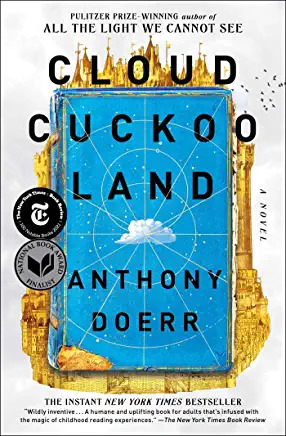
Like me, I think many reader/critics expect to repeat a previous experience they found to be pleasurable or satisfying, quick to reject that which doesn’t achieve those ends. Anthony Doerr’s new novel, Cloud Cuckoo Land, is riding high on the popularity list, with a stellar rating of 4.5 percent, with over 25,000 reviews! Yet, Cloud Cuckoo Land is not without its detractors, the one- and two-star reviewers who found it impossible to finish, putting it down after a hundred pages or so. “It isn’t, All the Light We Cannot See,” was a repeated cry by numerous disappointed consumers (approximately three percent of all reviews, so still a very low percentage). Yet, even those who didn’t finish the book still felt entitled to review it. Full disclosure, I am a huge Doerr fan, from the first story I read years ago in his short story collection, The Shell Collector, and everything since. Do I find some truth in what the bad reviews are saying about Cloud Cuckoo Land? Sort of (I get why some are reacting the way they are) but it doesn’t dampen my love of his work, nor would I ever leave a scathing review, no matter how much I was unable to approach his new novel. Why? Because I accept that even though I’ve been writing for over thirty years, I would never feel qualified to question Doerr's work, or his approach. Doerr is a genius, maybe the best writer working today. An unparalleled talent. So if I find it challenging, or difficult, it's an opportunity for me to drop the walls and learn. That’s why I will finish Cloud Cuckoo Land, right to the last page, a novel that somehow is becoming more and more brilliant to me each and every day!
My own novels have fallen under these harsh reviews by disappointed readers when I failed to meet expectations. No writer ever sets out to alienate readers, and I feel terrible when someone has a horrible experience from one of my stories. While at the same time, there is nothing I can do about it. Unlike Burger King, there is no way for me to please everyone. Part of the problem with my work, as well as other authors, is that some novels are difficult to categorize, not falling neatly into any one genre, which isn’t fair to readers who expect one thing and get something different. Even my agent vacillated over the proper category for The Cabin on Souder Hill. The publisher decided to go with Mystery/Thriller, which may have left many readers displeased, one so angry they said: “Never again!” to Busch’s novels.
I probably should just categorize my work as “literary,” though that would raise ire as well. About to work on this post, I was researching Margaret Atwood’s book, The Handmaid’s Tale, which surprisingly was under both Politics and Social Sciences, as well as (the more recent version with a different cover) under Science Fiction and Fantasy. But reading the blurb, I could see that it was both, as well as Literary.
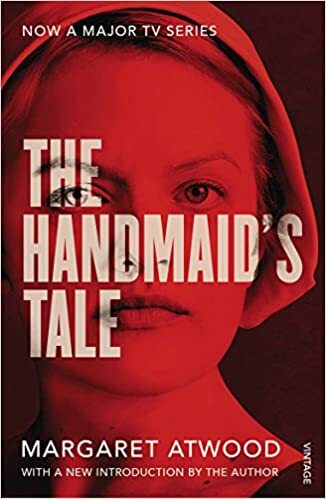
One book that was also hard to categorize was Sarah Canary by Karen Joy Fowler. Over a decade ago I bought Fowler’s book, which was a Nebula Award Nominee for best science fiction or fantasy book. Unfortunately, I don’t think I made it more than twenty pages before I just put it down. It wasn’t until 2022, thirteen years later, that I pulled it from my shelf, dusted it off, and read it cover to cover in about two weeks. Fowler is an amazing writer, though I could never understand why Sarah Canary was nominated for The Nebula Award. I found nothing in Sarah Canary that violated science or came across as fantastic. Nevertheless, I didn’t care. The writing was stellar, the story moving, with fascinating historical snippets woven beautifully into the narrative. So what changed over that decade? I’m fairly certain it wasn’t Fowler’s book.
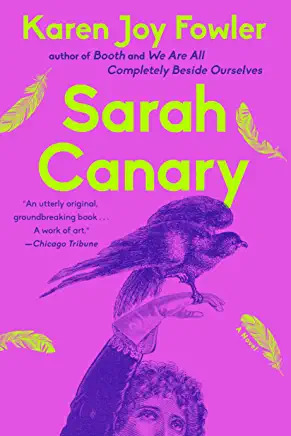
There have been many novels I’ve turned to the first page, brimming with anticipation, only to be disappointed or confused, or just unable to enter the story. Even so, I don’t think I could ever leave any author a one- or two-star review for a couple of reasons, one being that I won’t finish any novel that irritates me that much or is poorly written. And I wouldn’t feel good reviewing something I hadn’t completed. The second reason is something my dad used to say: “If you don’t have anything nice to say, don’t say anything at all.” I don’t believe he was promoting cordiality, but rather, giving me advice about not exposing my own ignorance through criticism of others, which I would have been guilty of on more than one occasion. So I am okay to move on from a disappointing read, but I understand when others aren’t; books cost money, and reading time is precious and limited, and no one wants either wasted on crap.
So blistering reviews are here to stay. Or are they? Maybe not. We are entering a new age that for many readers may be the balm they’ve been waiting for, while for others, like me, could spell the death of literature.
Under my own observations, I have concluded that we consumers of art and literature find it more and more difficult to approach these mercurial artforms with an unprejudiced mind, to hand ourselves over to the vision of the artist, to allow our minds to open to something new. I had this experience when I first started reading Philip K. Dick last summer (see my blog post, 2022, The Summer of Dick). I had no repository in my brain for his writing. It was foreign to me, and it took me a while to fold down the walls and allow him to take me somewhere I hadn’t been before. Fourteen Dick novels later, I am so glad I accepted the challenge!
But there is something afoot that goes beyond mere disappointment. Never in my lifetime did I expect to see “book banning” in America. Watching a video walkthrough of a library completely void of books gave me chills. A story about an author of children’s books ghosted because she is Chinese. School books banned for teaching certain subjects that state officials don’t like. Over 20 books were recently banned from a rural Virginia high school, among them, IT by Stephen King, The Bluest Eye by Toni Morrison, The Handmaid’s Tale by Margaret Atwood, 1984 by George Orwell and many others I read in high school, some ousted just for merely mentioning sex or sexual assault. Just this past week in the library where I live, a group of people met with library staff to offer up their list of books they want banned from the public library! How far does this go? Are we going to see an entire generation enter society having lost their right to choose, incapable of discernment, critical thinking and creativity?
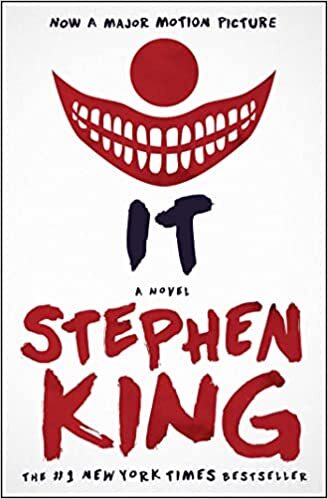
We may be on the brink of momentous change in how we consume fiction, as well as historical and other texts. AI. Artificial Intelligence. Machine Learning. Devoting my entire life to the pursuit of art (painting, commercial illustration, sculpture, print making, CG art, video editing, animation and writing) I watched with a tinge of horror on LinkedIn recently as artists and designers discussed—both arguing for and against—the value of machine learning in the field of advertising and design, and art in general, the implications mind-boggling and disturbing. So what does that have to do with fiction?
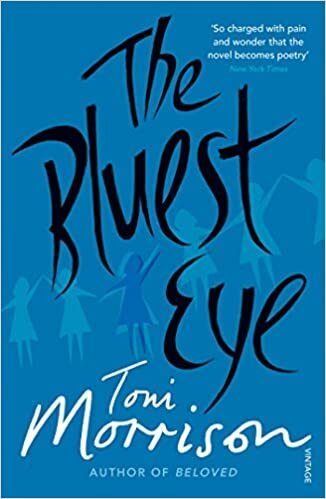
Some authors already use formulaic approaches to their work, attempting to ensure success of their novels by ticking all the right boxes. One influencer and proponent of self-published authors urges them to study the market where they plan to publish, then tailor their work to appeal to that audience. All these approaches shock me, because they’re not about exploring ideas, but only about marketing and making money. As an artist for over sixty years, I can’t help but feel this is the tail wagging the dog. But I am old school, it seems, with this slow rolling trend approaching for over twenty years, maybe longer, and picking up speed.
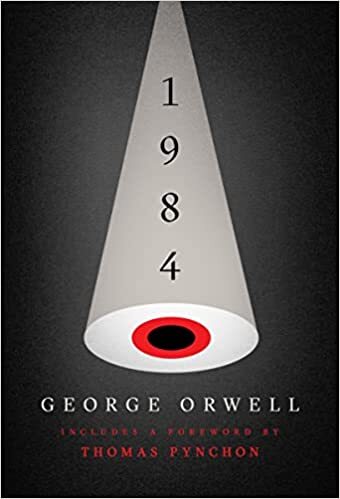
Back to machine learning, algorithms, and AI. Have you noticed that when you make an online purchase, you are bombarded with ads for that exact product, or a similar one, for days after, or sometimes even while you are still questioning your purchase in the process of closing your browser? The future is here, and there is no way to stop it. But let’s be clear, this so-called futuristic technology isn’t futuristic as much as it is intrusive, invasive, devious and unwelcome. At least to me.
But what does this have to do with book reviews and readers?

AI artwork_Shutterstock
Soon, every person could have books written and tailored specifically for them, stories that will check every box, hit every plot point at precisely the prefect moment. But how is this possible? AI machine learning is already trolling your reviews and comments, mining your preferences through your social media interaction, recording your purchases—clothing, books, food, cars—religious affiliation, political leanings. We wear devices that log if and when we exercise, when we enter REM sleep, when we dream, when we ovulate, tracking our menstrual cycles. Think of it, AI will be able to deliver exactly the novel you like reading. The villains you hate will be vanquished horribly. The heroes you love will always be victorious.
This possibility is not sci fi. We already have print on demand. We already have novel plotting software, character creation software, tension building software for authors (all too numerous to list here!). Machine learning is already chewing through and documenting your life preferences and prejudices. All AI needs now is to input the schematic of your psyche. Combine all this technology with your personal data and what do you have?
YNOD
Your Novel on Demand. Limitless variations under one title, with the story skewed to each individual reader. It would certainly wreak havoc on book clubs; same book supposedly, but with wildly different characters, plot points and conclusions. But it would be a story told the way you want it told, with the words you like, characters dressed appropriate to your taste and sensibilities, who believe and endorse only the things you do, who wear their hair the way you approve, who speak and think just the way you would expect them to, who act in accordance with your values, your core beliefs, your sexual preferences, who would never offer you an experience or situation to conflict with your world view. Machine learning will mine your expectations and deliver exactly the novel you like reading. No more consternation, no more thinking, no more challenge, just a peaceful pastime that will never impinge upon your conception of life, or take your hard-earned cash and drag you from your comfort zone.
1 The Road

First AI novel_2018
Let’s face it, Amazon’s Vella is already exploring this model (I had been thinking, with some reservations, of placing one of my stories there), where the author posts an episode every few days, or once a week, and readers weigh in on whether they like the characters, which way the plot should twist, how the story should proceed. To this I would say, "Be careful what you wish for."
AI and machine learning is our new future, and one of the most frightening aspects is, that we will have no way of knowing if the novel in our hands was written by a flesh and blood person, or some AI robot with a pen name created by a pen name generator (Reedsy has a pen name generator), armed with all the details of our life. Scary? Maybe, but according to some reviews I’ve read, it could be a welcome addition to the world of literature, to the new, “Have it Your Way” frontier.
For me, this potentiality is alarming. Yet there is nothing to be done about it. However, it would nudge me toward tackling my copy of James Joyce’s 732-page tomb Ulysses, with its forty or so punctuation-free pages at the end, which amounts to maybe the longest run-on sentence in history (AI would never allow such a thing!). Then I’ll follow Ulysses with Donald Barthelme’s, Amateurs, a book which I found difficult to read, but I’ll gladly make the effort again, embrace the challenge. Luckily, I have shelves filled with other books I’ve never opened, or stopped reading, and many I want to read again, books I know were penned with a flesh and blood poetic sensibility for language, forged through the angst, rumination and celebration over the struggle with what it means to be human.

Like me, I think many reader/critics expect to repeat a previous experience they found to be pleasurable or satisfying, quick to reject that which doesn’t achieve those ends. Anthony Doerr’s new novel, Cloud Cuckoo Land, is riding high on the popularity list, with a stellar rating of 4.5 percent, with over 25,000 reviews! Yet, Cloud Cuckoo Land is not without its detractors, the one- and two-star reviewers who found it impossible to finish, putting it down after a hundred pages or so. “It isn’t, All the Light We Cannot See,” was a repeated cry by numerous disappointed consumers (approximately three percent of all reviews, so still a very low percentage). Yet, even those who didn’t finish the book still felt entitled to review it. Full disclosure, I am a huge Doerr fan, from the first story I read years ago in his short story collection, The Shell Collector, and everything since. Do I find some truth in what the bad reviews are saying about Cloud Cuckoo Land? Sort of (I get why some are reacting the way they are) but it doesn’t dampen my love of his work, nor would I ever leave a scathing review, no matter how much I was unable to approach his new novel. Why? Because I accept that even though I’ve been writing for over thirty years, I would never feel qualified to question Doerr's work, or his approach. Doerr is a genius, maybe the best writer working today. An unparalleled talent. So if I find it challenging, or difficult, it's an opportunity for me to drop the walls and learn. That’s why I will finish Cloud Cuckoo Land, right to the last page, a novel that somehow is becoming more and more brilliant to me each and every day!
My own novels have fallen under these harsh reviews by disappointed readers when I failed to meet expectations. No writer ever sets out to alienate readers, and I feel terrible when someone has a horrible experience from one of my stories. While at the same time, there is nothing I can do about it. Unlike Burger King, there is no way for me to please everyone. Part of the problem with my work, as well as other authors, is that some novels are difficult to categorize, not falling neatly into any one genre, which isn’t fair to readers who expect one thing and get something different. Even my agent vacillated over the proper category for The Cabin on Souder Hill. The publisher decided to go with Mystery/Thriller, which may have left many readers displeased, one so angry they said: “Never again!” to Busch’s novels.
I probably should just categorize my work as “literary,” though that would raise ire as well. About to work on this post, I was researching Margaret Atwood’s book, The Handmaid’s Tale, which surprisingly was under both Politics and Social Sciences, as well as (the more recent version with a different cover) under Science Fiction and Fantasy. But reading the blurb, I could see that it was both, as well as Literary.

One book that was also hard to categorize was Sarah Canary by Karen Joy Fowler. Over a decade ago I bought Fowler’s book, which was a Nebula Award Nominee for best science fiction or fantasy book. Unfortunately, I don’t think I made it more than twenty pages before I just put it down. It wasn’t until 2022, thirteen years later, that I pulled it from my shelf, dusted it off, and read it cover to cover in about two weeks. Fowler is an amazing writer, though I could never understand why Sarah Canary was nominated for The Nebula Award. I found nothing in Sarah Canary that violated science or came across as fantastic. Nevertheless, I didn’t care. The writing was stellar, the story moving, with fascinating historical snippets woven beautifully into the narrative. So what changed over that decade? I’m fairly certain it wasn’t Fowler’s book.

There have been many novels I’ve turned to the first page, brimming with anticipation, only to be disappointed or confused, or just unable to enter the story. Even so, I don’t think I could ever leave any author a one- or two-star review for a couple of reasons, one being that I won’t finish any novel that irritates me that much or is poorly written. And I wouldn’t feel good reviewing something I hadn’t completed. The second reason is something my dad used to say: “If you don’t have anything nice to say, don’t say anything at all.” I don’t believe he was promoting cordiality, but rather, giving me advice about not exposing my own ignorance through criticism of others, which I would have been guilty of on more than one occasion. So I am okay to move on from a disappointing read, but I understand when others aren’t; books cost money, and reading time is precious and limited, and no one wants either wasted on crap.
So blistering reviews are here to stay. Or are they? Maybe not. We are entering a new age that for many readers may be the balm they’ve been waiting for, while for others, like me, could spell the death of literature.
Under my own observations, I have concluded that we consumers of art and literature find it more and more difficult to approach these mercurial artforms with an unprejudiced mind, to hand ourselves over to the vision of the artist, to allow our minds to open to something new. I had this experience when I first started reading Philip K. Dick last summer (see my blog post, 2022, The Summer of Dick). I had no repository in my brain for his writing. It was foreign to me, and it took me a while to fold down the walls and allow him to take me somewhere I hadn’t been before. Fourteen Dick novels later, I am so glad I accepted the challenge!
But there is something afoot that goes beyond mere disappointment. Never in my lifetime did I expect to see “book banning” in America. Watching a video walkthrough of a library completely void of books gave me chills. A story about an author of children’s books ghosted because she is Chinese. School books banned for teaching certain subjects that state officials don’t like. Over 20 books were recently banned from a rural Virginia high school, among them, IT by Stephen King, The Bluest Eye by Toni Morrison, The Handmaid’s Tale by Margaret Atwood, 1984 by George Orwell and many others I read in high school, some ousted just for merely mentioning sex or sexual assault. Just this past week in the library where I live, a group of people met with library staff to offer up their list of books they want banned from the public library! How far does this go? Are we going to see an entire generation enter society having lost their right to choose, incapable of discernment, critical thinking and creativity?

We may be on the brink of momentous change in how we consume fiction, as well as historical and other texts. AI. Artificial Intelligence. Machine Learning. Devoting my entire life to the pursuit of art (painting, commercial illustration, sculpture, print making, CG art, video editing, animation and writing) I watched with a tinge of horror on LinkedIn recently as artists and designers discussed—both arguing for and against—the value of machine learning in the field of advertising and design, and art in general, the implications mind-boggling and disturbing. So what does that have to do with fiction?

Some authors already use formulaic approaches to their work, attempting to ensure success of their novels by ticking all the right boxes. One influencer and proponent of self-published authors urges them to study the market where they plan to publish, then tailor their work to appeal to that audience. All these approaches shock me, because they’re not about exploring ideas, but only about marketing and making money. As an artist for over sixty years, I can’t help but feel this is the tail wagging the dog. But I am old school, it seems, with this slow rolling trend approaching for over twenty years, maybe longer, and picking up speed.

Back to machine learning, algorithms, and AI. Have you noticed that when you make an online purchase, you are bombarded with ads for that exact product, or a similar one, for days after, or sometimes even while you are still questioning your purchase in the process of closing your browser? The future is here, and there is no way to stop it. But let’s be clear, this so-called futuristic technology isn’t futuristic as much as it is intrusive, invasive, devious and unwelcome. At least to me.
But what does this have to do with book reviews and readers?

AI artwork_Shutterstock
Soon, every person could have books written and tailored specifically for them, stories that will check every box, hit every plot point at precisely the prefect moment. But how is this possible? AI machine learning is already trolling your reviews and comments, mining your preferences through your social media interaction, recording your purchases—clothing, books, food, cars—religious affiliation, political leanings. We wear devices that log if and when we exercise, when we enter REM sleep, when we dream, when we ovulate, tracking our menstrual cycles. Think of it, AI will be able to deliver exactly the novel you like reading. The villains you hate will be vanquished horribly. The heroes you love will always be victorious.
This possibility is not sci fi. We already have print on demand. We already have novel plotting software, character creation software, tension building software for authors (all too numerous to list here!). Machine learning is already chewing through and documenting your life preferences and prejudices. All AI needs now is to input the schematic of your psyche. Combine all this technology with your personal data and what do you have?
YNOD
Your Novel on Demand. Limitless variations under one title, with the story skewed to each individual reader. It would certainly wreak havoc on book clubs; same book supposedly, but with wildly different characters, plot points and conclusions. But it would be a story told the way you want it told, with the words you like, characters dressed appropriate to your taste and sensibilities, who believe and endorse only the things you do, who wear their hair the way you approve, who speak and think just the way you would expect them to, who act in accordance with your values, your core beliefs, your sexual preferences, who would never offer you an experience or situation to conflict with your world view. Machine learning will mine your expectations and deliver exactly the novel you like reading. No more consternation, no more thinking, no more challenge, just a peaceful pastime that will never impinge upon your conception of life, or take your hard-earned cash and drag you from your comfort zone.
1 The Road

First AI novel_2018
Let’s face it, Amazon’s Vella is already exploring this model (I had been thinking, with some reservations, of placing one of my stories there), where the author posts an episode every few days, or once a week, and readers weigh in on whether they like the characters, which way the plot should twist, how the story should proceed. To this I would say, "Be careful what you wish for."
AI and machine learning is our new future, and one of the most frightening aspects is, that we will have no way of knowing if the novel in our hands was written by a flesh and blood person, or some AI robot with a pen name created by a pen name generator (Reedsy has a pen name generator), armed with all the details of our life. Scary? Maybe, but according to some reviews I’ve read, it could be a welcome addition to the world of literature, to the new, “Have it Your Way” frontier.
For me, this potentiality is alarming. Yet there is nothing to be done about it. However, it would nudge me toward tackling my copy of James Joyce’s 732-page tomb Ulysses, with its forty or so punctuation-free pages at the end, which amounts to maybe the longest run-on sentence in history (AI would never allow such a thing!). Then I’ll follow Ulysses with Donald Barthelme’s, Amateurs, a book which I found difficult to read, but I’ll gladly make the effort again, embrace the challenge. Luckily, I have shelves filled with other books I’ve never opened, or stopped reading, and many I want to read again, books I know were penned with a flesh and blood poetic sensibility for language, forged through the angst, rumination and celebration over the struggle with what it means to be human.
Published on February 18, 2023 16:13
•
Tags:
ai, anthony-doerr, critique, fiction, george-orwell, karen-joy-fowler, machine-learning, margaret-atwood, stephen-king, toni-morrison, writing
BOOK CLUB

Book club had dwindled over the past few years; Joan overdosed; Carla ate her husband’s service revolver when hubby Don sold her personal library for 3.2 million and fled to Belize with a coffee shop waitress; Marianne was beaten to death when thugs broke in and carted her entire book collection away in a rented van; Shawna slit her wrists in the tub reading her signed copy of “Damage.” The other four women met similar fates, losing interest in life by degrees. Justine, Margo, Blossom, and Dee were the only ones left. This month’s book: “Lake House Strangers.”
They all said they loved the new novel by author, Argos Intrigue. Of course, they would.
“I knew when they got to the secluded lake house Deke would do something horrible to that airhead Isabel. Chaining her in the bedroom like that! Abusing her in that way… Jeez!” Margo said, smirking, her eyes glistening with lust.
“No, Deke was a perfect gentleman. I loved how they worked together fixing up that old shack together, Deke giving the lake house to Isabel’s aging mother,” Blossom said, cooing with her palm over her heart. “Then getting married on the boat dock.”
“Oh, brother!” Dee said. “Deke was no good from the start, all that bullshit about the Peace Corp. I knew he was an evil bastard, trying to enslave Isabel at the lake house, but Isabel surprised me, turning into that conniving monster, inviting all her cannibal friends to feast on Deke!”
“Wow, I loved Deke!” Justine said, despising the insipid novel. But she loved her friends, and book club, at least the memory of it. “I hated how Isabel took advantage of him at the lake house, auctioning off his organs and eyes online to the highest bidder! Her elaborate life support system was a shocker! I had no idea a human could be kept alive after having that many organs harvested!”
The women talked for another few hours before the evening broke up. Alone, Justine dropped “Lake House Strangers” in the trash compacter and made herself a cup of tea. Flipping on the basement light, she slowly descended the long flight of wooden steps. At the bottom, she set her tea down and went to her husband’s enormous gun safe, the size of a double-wide refrigerator and twice as deep. Twisting the numbers into the mechanism until it clicked she pulled the huge door open, the sight always bringing her infinite joy, the rare colorful book spines shining back, all of them written by human authors before AI devoured the entire publishing industry; eliminating brick and mortar bookstores, churning out derivative drivel— each new title individually created and printed on demand for the intended buyer based on their likes and dislikes, social media posts and reviews they’d written.
She pulled a novel from the safe and sat down near the furnace, sipping her tea. This book she could almost recite by heart, having read it so many times, but it didn’t matter. Kevin, her husband, had insisted they could get five mil for her amazing book collection, but she wasn’t about to sell. Glancing toward the corner, at the lighter patch of concrete that had hardened months ago, she wondered if the color would ever match the rest of the floor. She still missed Kevin, but the longing had faded. She opened her novel to the bookmark, settled back into her chair and let the words wash over her like warm summer sunshine.
Published on April 19, 2023 14:12
•
Tags:
artificial-intelligence, books, fiction, flash-fiction, horror, novels, print-on-demand, publishing, sudden-fiction, writing
Spoken With Authority
***(contains profanity)***
The barbershop. That’s where I first heard it. I was almost eleven when my parents let me go by myself.
“…this fucking big around!”
That one word spoken with authority, not in anger, but with masculine passion to put the point on a point! Jesus, it was like being thrust into the world of men, where men discussed things that required words with more amperage than the watered-down versions of profanity I heard at home.
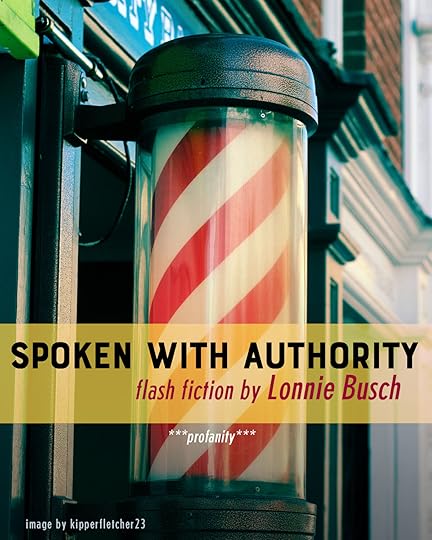
No, this place was real, a place my father wouldn’t even fit in, a place that shot me skyward past my dad’s stilted station as husband, breadwinner, and swearing flunky, a place crusted over with stubble-faced old men leaning forward on rock-hard knees, a place where arms swung wide like the blades of arthritic windmills and gnarled fingers poked sternly into imaginary chests if a tale was to be told correctly, a place where no one was ever surprised, or shocked, or dismayed, a place where the story of one man’s tragic tale was met—with no attempt to top—by another’s in the spirit of solidarity, conspiring against the cosmos with the same tenacity the gods had conspired against them, a place where men’s spittle and fire fueled the gravity of every yarn and landed on your forehead if you were unfortunate enough to be sitting too close.
I can still picture that old man sitting there, blue shirt and matching pants, some sort of mechanic’s jumpsuit, an oval sewn onto the left chest of the shirt and the name Earl stitched elegantly in satiny scarlet thread. His hands were maroon and bent, the fingers amber near the tips where his cigarette rested. His face was a craggy leather bag, his skull narrow with thick slate hair rolling back in a natural wave on top, trimmed thin as sprinkled pepper down his neck and around his ears. His knees poked at the material of his trousers like the fat ends of Louisville Sluggers, while the bottom cuffs crept up his bony ankles exposing droopy thin white socks and black shoes sturdy as cinderblocks.
“A maple tree! That bastard was this fucking big around!”
Earl’s voice was a rusty razor on a grainy strop, his spittle glittering through the shaft of sunlight, red eyes narrowed like a killer’s, arms bear-hugging some invisible trunk for us to see. Us. He didn’t exclude me because I was a kid. A couple of times he even looked right at me, those big mitts of his clamped to his knees. Veins thick as lamp-cords crisscrossing the backs of his hands, winding around his wrists. Scared the hell out of me and the only words I heard for the duration of my time in the chair were cocksuckersonofabitch spoken as one word, and all derivations and compound varieties of fuck. I was astonished, terrified and relieved when the barber swung the apron from my chest with a matador’s flourish and held up the mirror for me to admire the back of my head. I nodded, smiled nervously and dug in my pocket for the crumpled bills, still picturing Earl clutching that bastard of a tree, praying I’d never see him again.
(This is a 500-word flash fiction piece I wrote a several years back about an impressionable eleven-year old Catholic boy (me), who, in the early sixties made his first solo trip to the neighborhood barbershop. That skinny little fair-haired kid was introduced to a raft of swear words he hadn’t even known existed!
The funny thing was, a few years after this barbershop incident, I started working at a local grocery store a mile or so from my home, Gus’s Market, and met Bob who also worked there. Bob was a few years older than I was, and we became fast friends. One day I went to his house after school and met his two sisters and his mom. Bob’s dad was also there that day, and I just about fainted when I recognized him as “Earl” from the barbershop!
It turned out his dad was a golden-gloves boxer in his youth, worked as a mechanic, and was just a regular guy. Earl even took Bob and me fishing several times up on the Missouri River and we had a lot of fun, though I’m not sure I was ever able to see Earl as anyone other than the rugged, sinewy dude sitting in one of the dark wooden chairs along the back wall of the barbershop. Earl of course never recognized me, how could he, but I never told Bob. Of course by that time I was maybe 15 or 16, and already swearing like a merchant marine myself!
Fascinating how the threads of fate weave in and out of our lives.)
Lonnie Busch
The barbershop. That’s where I first heard it. I was almost eleven when my parents let me go by myself.
“…this fucking big around!”
That one word spoken with authority, not in anger, but with masculine passion to put the point on a point! Jesus, it was like being thrust into the world of men, where men discussed things that required words with more amperage than the watered-down versions of profanity I heard at home.

No, this place was real, a place my father wouldn’t even fit in, a place that shot me skyward past my dad’s stilted station as husband, breadwinner, and swearing flunky, a place crusted over with stubble-faced old men leaning forward on rock-hard knees, a place where arms swung wide like the blades of arthritic windmills and gnarled fingers poked sternly into imaginary chests if a tale was to be told correctly, a place where no one was ever surprised, or shocked, or dismayed, a place where the story of one man’s tragic tale was met—with no attempt to top—by another’s in the spirit of solidarity, conspiring against the cosmos with the same tenacity the gods had conspired against them, a place where men’s spittle and fire fueled the gravity of every yarn and landed on your forehead if you were unfortunate enough to be sitting too close.
I can still picture that old man sitting there, blue shirt and matching pants, some sort of mechanic’s jumpsuit, an oval sewn onto the left chest of the shirt and the name Earl stitched elegantly in satiny scarlet thread. His hands were maroon and bent, the fingers amber near the tips where his cigarette rested. His face was a craggy leather bag, his skull narrow with thick slate hair rolling back in a natural wave on top, trimmed thin as sprinkled pepper down his neck and around his ears. His knees poked at the material of his trousers like the fat ends of Louisville Sluggers, while the bottom cuffs crept up his bony ankles exposing droopy thin white socks and black shoes sturdy as cinderblocks.
“A maple tree! That bastard was this fucking big around!”
Earl’s voice was a rusty razor on a grainy strop, his spittle glittering through the shaft of sunlight, red eyes narrowed like a killer’s, arms bear-hugging some invisible trunk for us to see. Us. He didn’t exclude me because I was a kid. A couple of times he even looked right at me, those big mitts of his clamped to his knees. Veins thick as lamp-cords crisscrossing the backs of his hands, winding around his wrists. Scared the hell out of me and the only words I heard for the duration of my time in the chair were cocksuckersonofabitch spoken as one word, and all derivations and compound varieties of fuck. I was astonished, terrified and relieved when the barber swung the apron from my chest with a matador’s flourish and held up the mirror for me to admire the back of my head. I nodded, smiled nervously and dug in my pocket for the crumpled bills, still picturing Earl clutching that bastard of a tree, praying I’d never see him again.
(This is a 500-word flash fiction piece I wrote a several years back about an impressionable eleven-year old Catholic boy (me), who, in the early sixties made his first solo trip to the neighborhood barbershop. That skinny little fair-haired kid was introduced to a raft of swear words he hadn’t even known existed!
The funny thing was, a few years after this barbershop incident, I started working at a local grocery store a mile or so from my home, Gus’s Market, and met Bob who also worked there. Bob was a few years older than I was, and we became fast friends. One day I went to his house after school and met his two sisters and his mom. Bob’s dad was also there that day, and I just about fainted when I recognized him as “Earl” from the barbershop!
It turned out his dad was a golden-gloves boxer in his youth, worked as a mechanic, and was just a regular guy. Earl even took Bob and me fishing several times up on the Missouri River and we had a lot of fun, though I’m not sure I was ever able to see Earl as anyone other than the rugged, sinewy dude sitting in one of the dark wooden chairs along the back wall of the barbershop. Earl of course never recognized me, how could he, but I never told Bob. Of course by that time I was maybe 15 or 16, and already swearing like a merchant marine myself!
Fascinating how the threads of fate weave in and out of our lives.)
Lonnie Busch
Published on June 09, 2023 16:32
•
Tags:
fiction, flash-fiction, humor, short-story, sudden-fiction, writing



